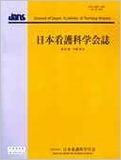Japanese
English
- 販売していません
- Abstract 文献概要
- 参考文献 Reference
要旨
目的:看護基礎教育課程における小児看護学シミュレーション教育の研究を概観し,今後の教育上の課題を明らかにする.
方法:CINAHL,PubMed,医学中央雑誌Web版に2015年12月までに公表されたシミュレーションによる小児看護学教育に関する38論文を対象とした.
結果:シミュレーションによる小児看護学教育の研究は近年急増し,小児の発達段階に焦点をあてたアセスメント・ケアをマネキン・高性能シミュレーターを用いたシナリオにより,講義・演習,一部は臨地実習を代替して実施していた.評価では知識,学習経験,技術・パフォーマンス,批判的思考,臨床判断力,自信・満足度等が用いられ,特にわが国では介入後のみの評価や学生の主観的評価であった.
結論:小児の発達段階を踏まえたアセスメント・ケアを強調するシナリオ,一連の講義・演習におけるシミュレーションおよび臨地実習を含む教育デザイン,評価指標と測定方法等の研究デザインの課題が示唆された.
Objectives: This study reviewed the education, research methodology, and evaluations used in a simulation-based learning program for undergraduate pediatric nursing students.
Methods: A review of studies published in December 2015 was performed using the following databases: CINAHL, PubMed, and the Japanese Central Review of Medicine. The primary search terms were ‘pediatric,’ ‘child,’ ‘simulation,’ ‘manikin,’ ‘nursing,’ and ‘student.’ Additionally, reference lists from all relevant reports were searched.
Results: In total, 38 studies were included in the review. We found that studies regarding simulation-based learning for pediatric nursing students are increasing. The simulation scenario in these studies focused on assessments of child development and nursing care using common pediatric clinical situations involving manikins and high-quality human standardized patients. These studies also performed pre-briefing and debriefings for pediatric nursing courses and clinical practices, and some studies exchanged a component of a course on pediatric clinical practices for simulations. The evaluations included various learning outcomes, such as knowledge, experience, performance, critical thinking, clinical judgment, and self-confidence, as well as a measure of the satisfaction of undergraduate student nurses, particularly many learning outcomes was subjectively.
Conclusions: It is important that the scenarios of the simulations used in pediatric nursing education emphasize child developmental assessment and pediatric nursing care and be welldesigned and educational; it is also important that programs include a combination of classroom learning and clinical practice. Additionally, the use of a valid research design, predefined learning outcomes, and measures of the effectiveness of simulations are important contributors to undergraduate pediatric nursing education.
Copyright © 2017, Japan Academy of Nursing Science. All rights reserved.


